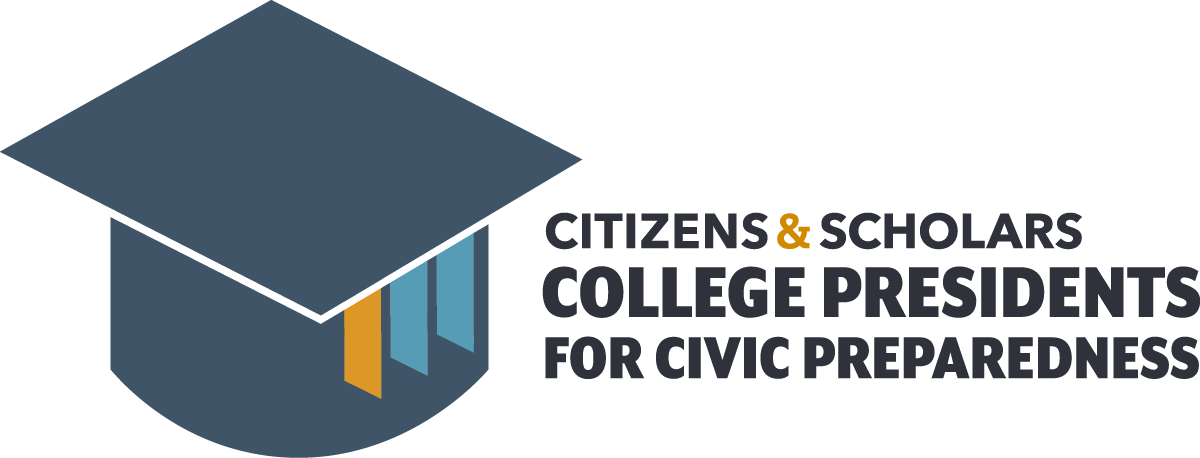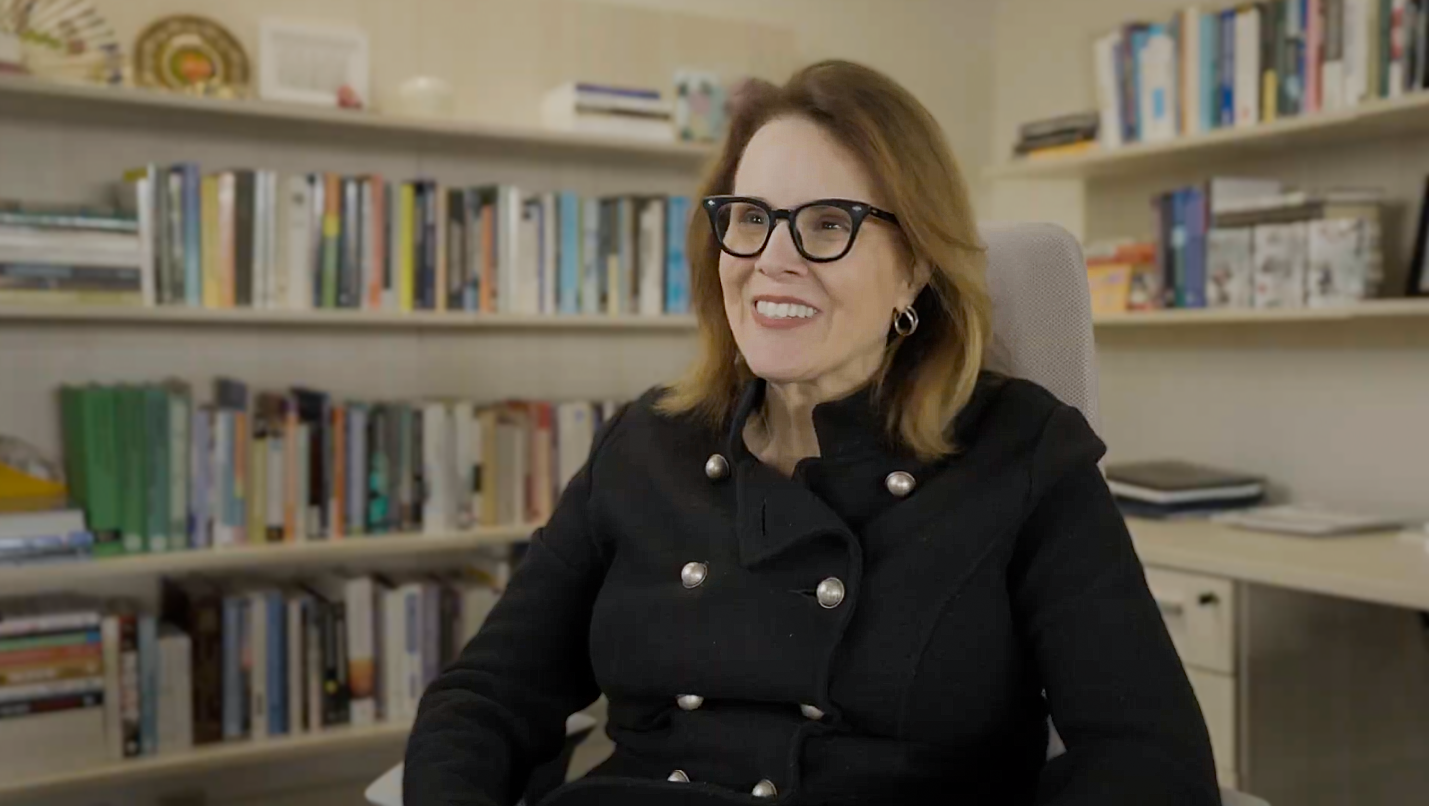Joan Gabel is the Chancellor of the University of Pittsburgh.
“Building bridges doesn’t mean you change your mind. It means you appreciate that people can be on both sides of the bridge, and that’s okay—in fact, it’s often a good thing.”
What does civil discourse mean to you?
I think civil discourse is fundamentally anchored in respect for the reality that there are multiple points of view. It includes an exchange of ideas and perspectives with the recognition that disagreement can be a good thing—and that the willingness to listen is a key part of that exchange. If we create an environment where there can be healthy disagreement, robust discussion, and active listening, then I think we’ve created civil discourse.
What are the reasons that you do this work and who are you doing it for?
The University of Pittsburgh—and I personally—are committed to civil discourse, civic discourse, and free expression because we believe this is the ultimate way to learn. As a university community made up of people with different points of view and interests, we come here to explore those interests and to ask hard questions. We also expect hard questions to be asked of us. That process helps us understand, explain, and defend our points of view, while appreciating that not everyone will agree.
What inspired Pitt’s Year of Discourse and Dialogue?
The Year of Discourse and Dialogue continues a tradition at Pitt where we designate a “Year of” theme through a shared governance process. This theme is chosen based on input from across the university on what topic is most pressing. When I arrived, the Year of Discourse and Dialogue had already been selected, but it turned out to be even more timely than anyone anticipated, given the evolving social dynamics on campus and beyond.
There was such strong momentum and engagement from faculty, staff, and students that we extended it into a second year—for the first time ever. The enthusiasm is still there, and it’s been a very meaningful experience for our community.
Why do you think Pitt is a great backdrop for this kind of work?
Pitt is relatively unique as a comprehensive public campus located in a metropolitan area. By definition, we include people from a wide range of identities, perspectives, and educational backgrounds—crossing our campus every day. As a public institution, our doors are wide open. We want everyone to feel welcome and to succeed here.
That success includes the ability to express oneself freely, but in a way that embraces civil discourse. Our setting—Western Pennsylvania and Pittsburgh more broadly—reflects a true cross-section of society, which makes us an ideal environment to explore civil discourse as an essential part of education.
Are there any examples that come to mind when you’ve seen this work in action?
One of my favorite examples is a program called All Angles, part of our Year of Discourse and Dialogue. Students come together to explore a topic—sometimes a hot-button issue, sometimes just a complex one. They’re trained in facilitation and listening and then asked to explore the topic from multiple perspectives. It’s not a debate—no one’s trying to win or argue a side. They’re exploring the dimensions of the issue.
It’s been eye-opening, very well attended, and has become something we’re really proud of. It empowers students to see themselves as capable of having these conversations—and to want more of them.
Why does bridge building mean so much to you?
Bridge building means a lot to me because there’s often an assumption that being divided is a bad thing. The word “division” itself has a negative connotation, when in fact, division can simply mean difference—and difference is a good thing.
The way we overcome the negative association with being divided is by building bridges. And building bridges doesn’t mean you change your mind. It means you appreciate that people can be on both sides of the bridge, and that’s okay—in fact, it’s often a good thing.
When we meet—at least in understanding each other’s point of view—and are able to express why we may or may not agree, we deepen our understanding of why we stand where we do. That makes us more educated, more kind, and better equipped to function as a society.
How do you measure the success of these efforts?
For us, success is both quantitative and qualitative. We track three goals: whether our community feels more comfortable speaking their mind when they disagree, whether people are self-describing as open to hearing perspectives other than their own, and whether we are able to create an environment where good intent is presumed. Those are really the three legs of the stool.
We use surveys, focus groups, and feedback mechanisms to track how people are engaging and what they’re getting out of it. The most satisfying part is when the trend lines start to go in the same direction—more participation, more satisfaction, and more comfort engaging across difference.
What do you hope Pitt students take with them after they graduate?
I hope they leave with not only professional readiness, but a sense of emotional intelligence and readiness for citizenship. They should be able to discern amidst differing points of view and feel more comfortable in their own skin.
They should be equipped to participate thoughtfully and respectfully in all spheres of life—not just work, but in their communities, with their families, and in the broader civic space.
What advice would you give to other higher ed leaders who want to do this work but aren’t sure where to start?
Start by assuming good intent. We’re in a moment where many are afraid they’ll be misinterpreted. And while that can happen, I’d encourage leaders not to let that fear stop them from engaging. We have to be willing to have uncomfortable conversations and model that ourselves—not just teach it.
Listen to your students. Learn what they’re thinking about and how they’re talking about it. Use that as the foundation for building programming, curriculum, and policies. Listening first, then acting—that’s the key. And higher ed is uniquely positioned to lead in this space. It’s part of our mission.
Learn more about Chancellor Joan Gabel here.

